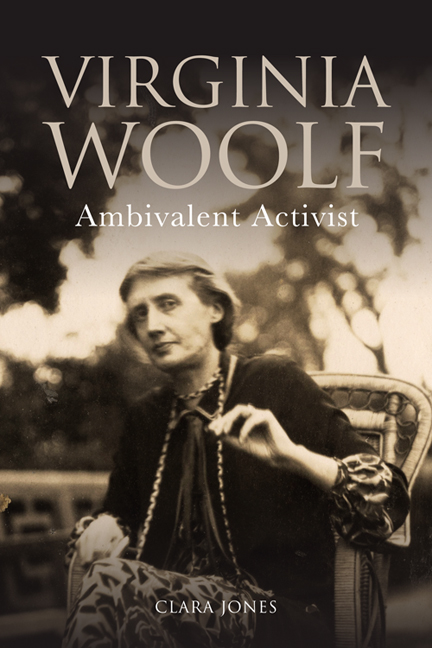Book contents
- Frontmatter
- Contents
- Acknowledgements
- Abbreviations
- Introduction
- 1 Virginia Stephen and Morley College, 1905–7
- 2 Virginia Stephen and the People's Suffrage Federation, 1910
- 3 Virginia Woolf and the Women's Co-operative Guild, 1913–31
- 4 Virginia Woolf and the Rodmell Women's Institute, 1940–1
- Conclusion
- Appendix 1 The ‘Morley Sketch’
- Appendix 2 The ‘Cook Sketch’
- Bibliography
- Index
4 - Virginia Woolf and the Rodmell Women's Institute, 1940–1
Published online by Cambridge University Press: 05 September 2016
- Frontmatter
- Contents
- Acknowledgements
- Abbreviations
- Introduction
- 1 Virginia Stephen and Morley College, 1905–7
- 2 Virginia Stephen and the People's Suffrage Federation, 1910
- 3 Virginia Woolf and the Women's Co-operative Guild, 1913–31
- 4 Virginia Woolf and the Rodmell Women's Institute, 1940–1
- Conclusion
- Appendix 1 The ‘Morley Sketch’
- Appendix 2 The ‘Cook Sketch’
- Bibliography
- Index
Summary
Introduction
Then the [W.I.] plays rehearsed here yesterday. My contribution to the war is the sacrifice of pleasure: I'm bored: bored and appalled by the readymade commonplaceness of these plays: which they cant act unless we help. I mean, the minds so cheap, compared with ours, like a bad novel – thats my contribution – to have my mind smeared by the village & WEA mind; & to endure it, & the simper. (D5 288)
Virginia Woolf's May 1940 diary entry detailing her involvement in the production of two village plays by the Rodmell Women's Institute shows her at her most vitriolic and visceral, but also desperate. And yet, in spite of the violence of her private commentary on this activity, Woolf's membership and active participation in the Rodmell WI has received little sustained scholarly attention and rarely appears in the roll call of her political and social activisms. This final instance of Woolf's social participation frustrates any scholarly attempt to map a progressive or necessarily coherent narrative of Woolf's activism. In recent accounts of Woolf's politics, the 1930s have tended to dominate and it is easy to see why Woolf's more humdrum activities with the WI – collecting membership money or organising talks in the village hall – have been overshadowed by the ideological and historical urgency of her anti-fascist work in this period. Not only does the apparently centrist, though allegedly right-leaning, bias of the WI fail to conform with the otherwise left-wing agendas of the other groups Woolf was associated with, but, as the above quotation illustrates, her association with the WI was also riven with ambivalence, just as her previous instances of political and social participation had been.
Further attention to this diary entry reveals the real urgency of Woolf's involvement with the WI and its implications for our understanding of her political and literary practice in the last years of her life. At first reading it appears to be the snobbish tirade of an exasperated Woolf furious at once again being made to ‘join’, having comforted herself after the publication of Three Guineas in 1938 – her contribution to society as she saw it – with the mantra: ‘No longer famous, no longer on a pedestal; no longer hawked in by societies: on my own, for ever’ (D5 136–7).
- Type
- Chapter
- Information
- Virginia WoolfAmbivalent Activist, pp. 154 - 206Publisher: Edinburgh University PressPrint publication year: 2015

